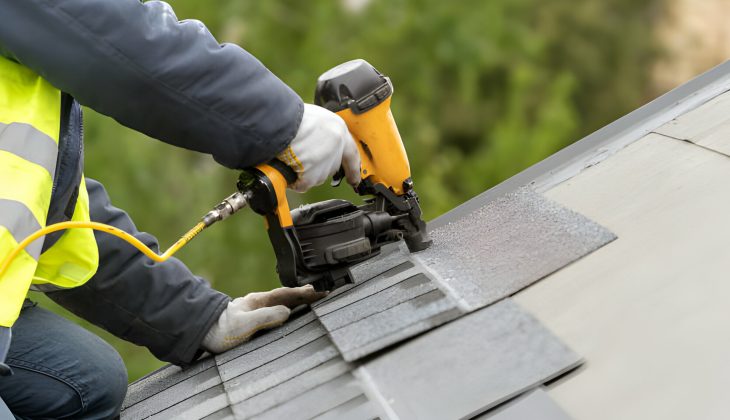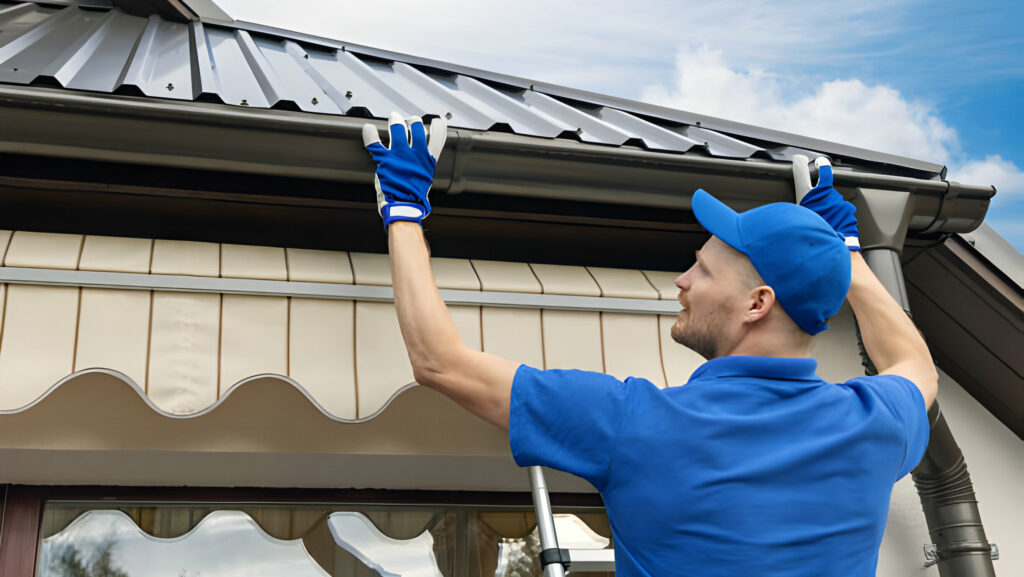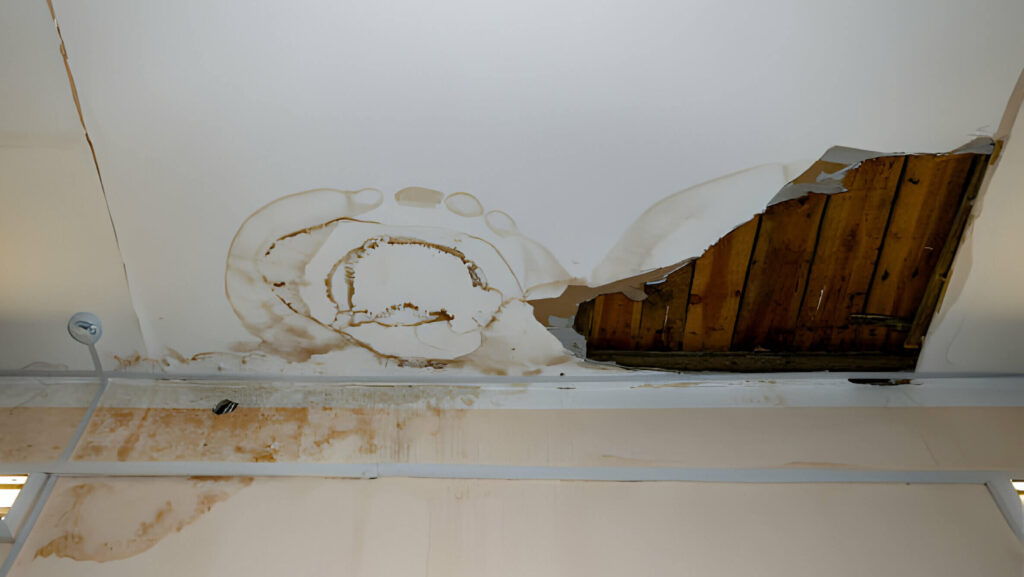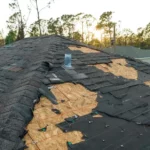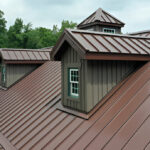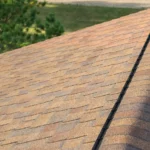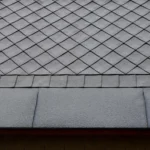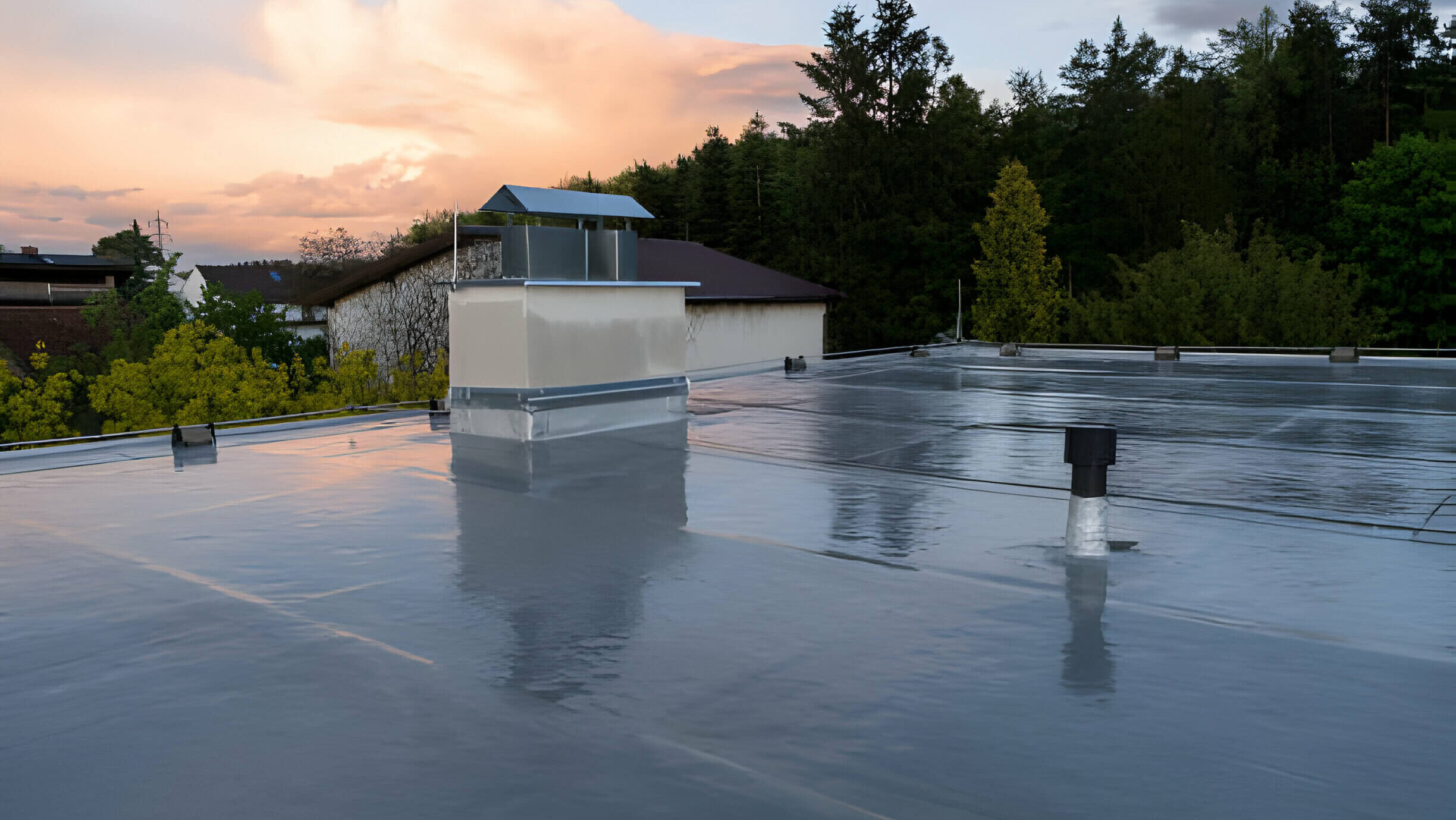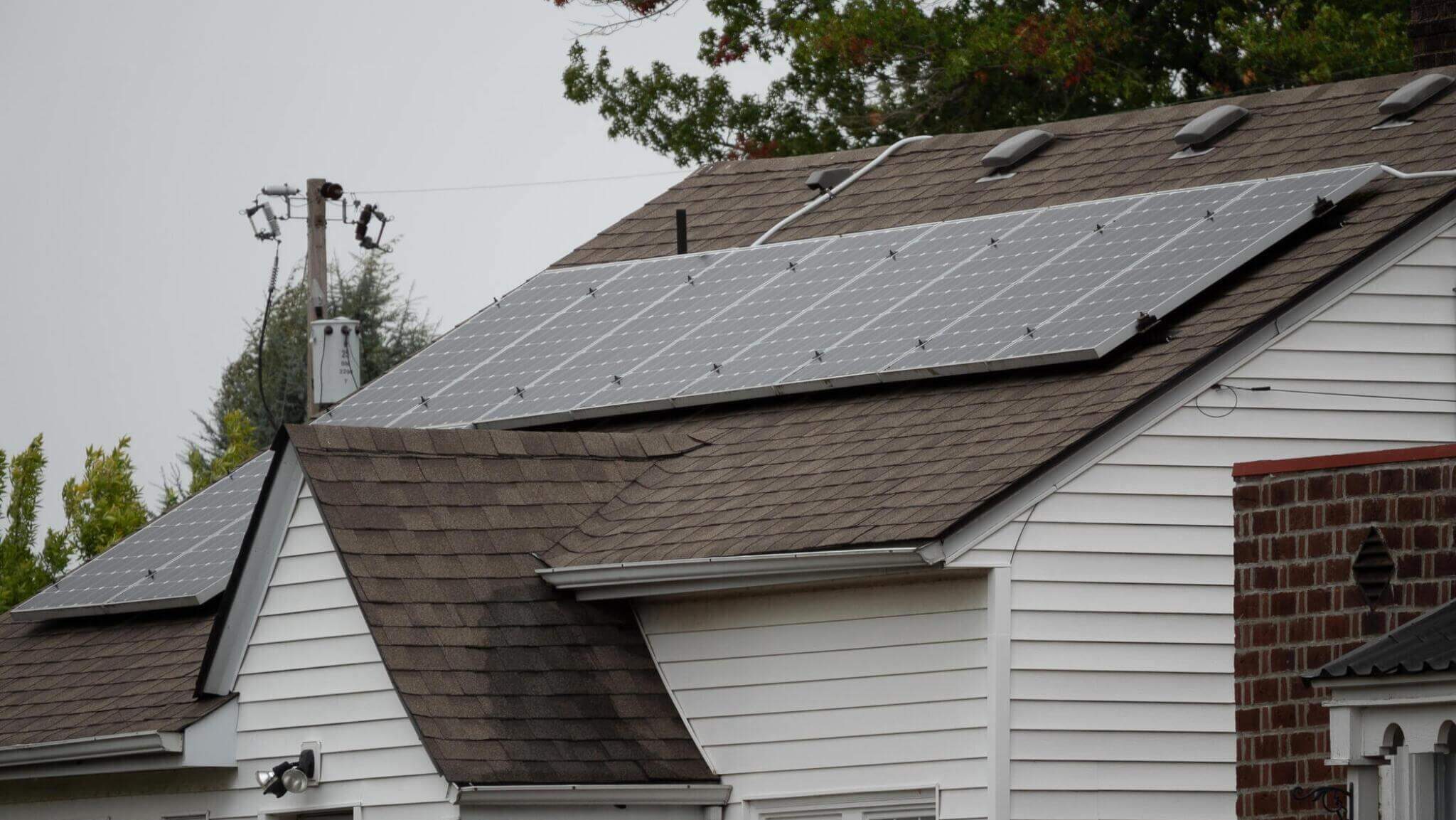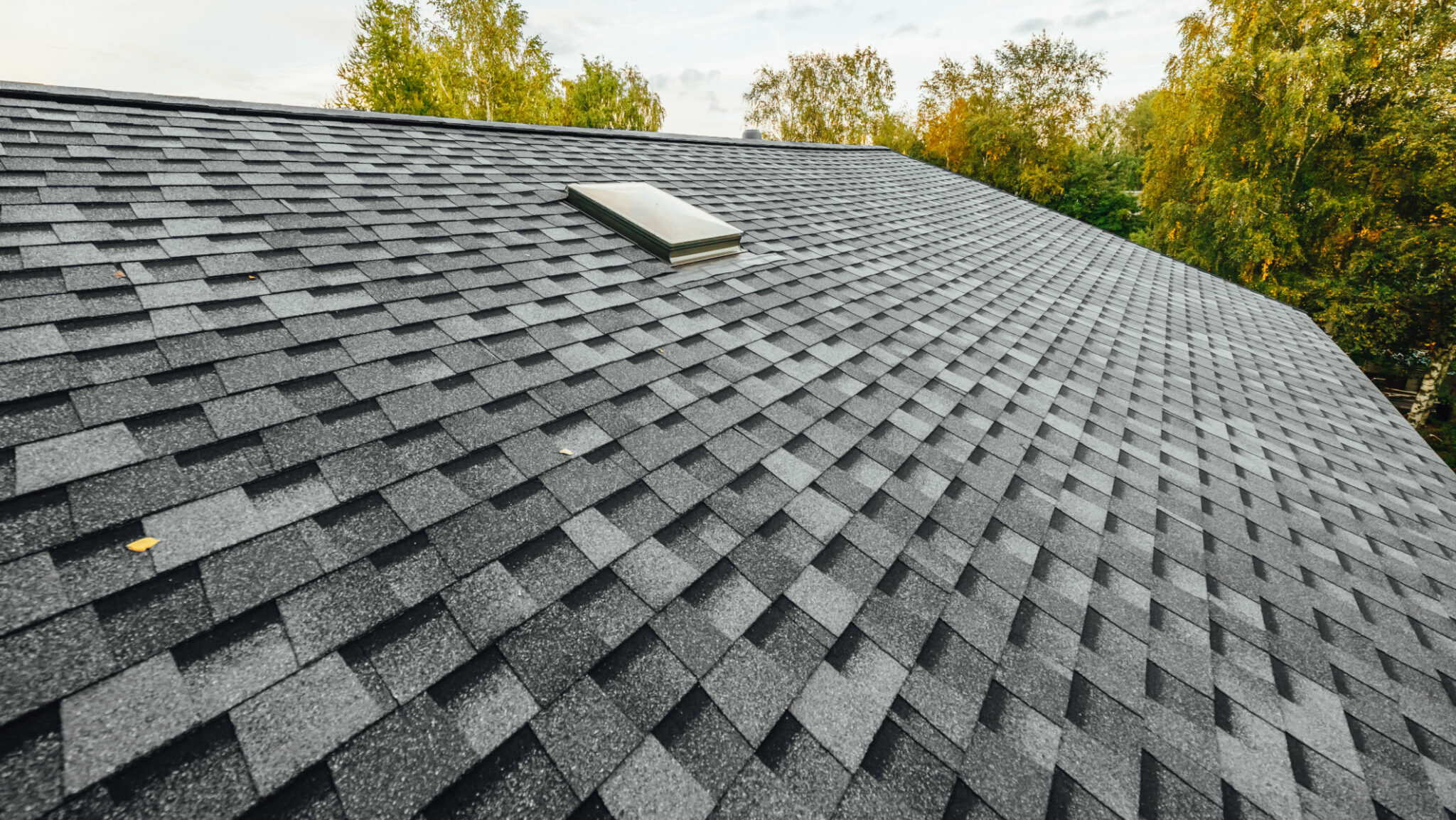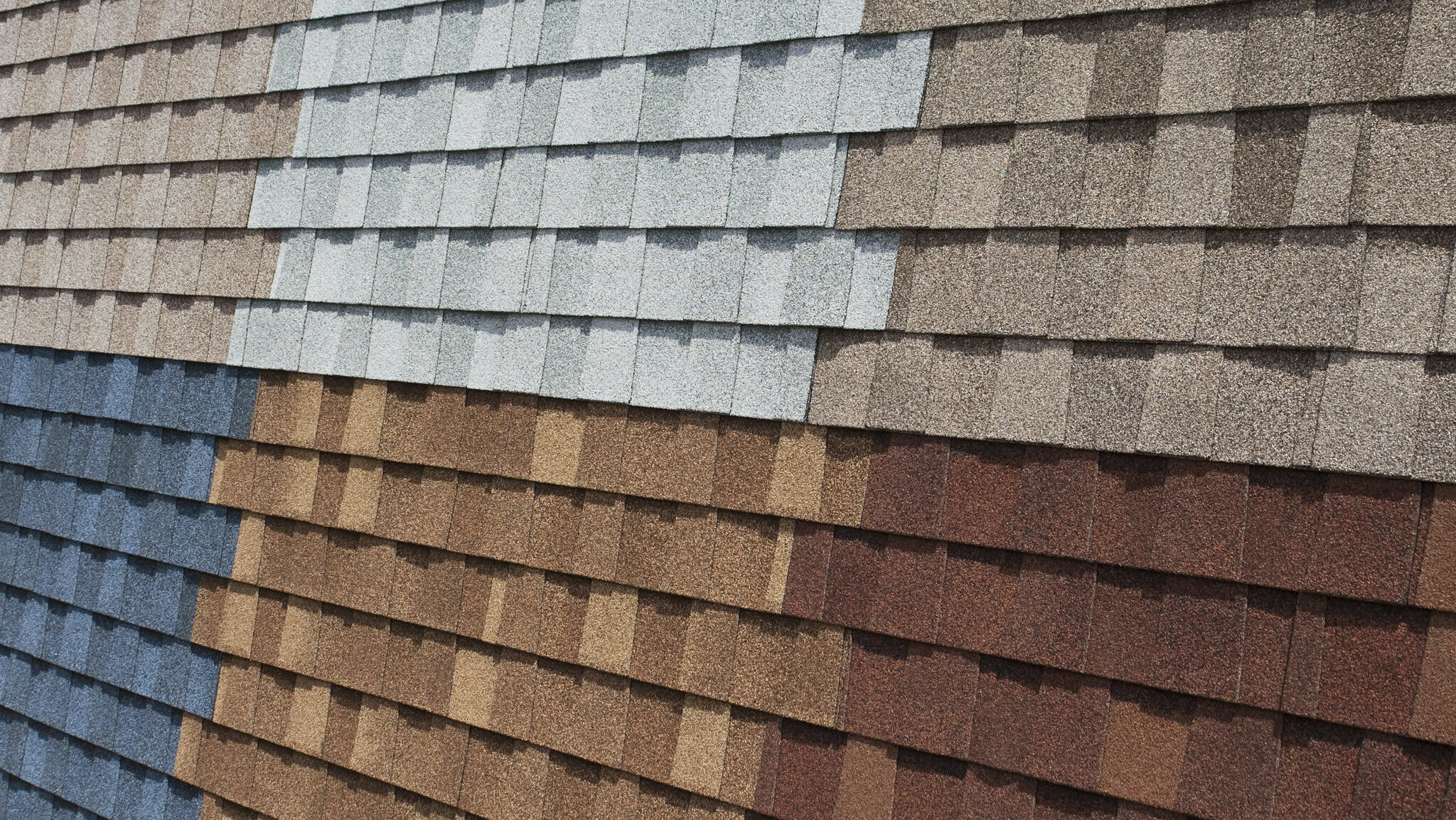Deciding if you will use asphalt or composite shingles for your roof redo is enormous. You have to nail this decision, but figuring out the best one is not a walk in the park.
Table of Contents
ToggleAsphalt shingles are simple, with fiberglass, tar, and granules stacked on a fiberglass mat. Conversely, composite shingles are crafted from synthetic polymers or recycled goodies, simulating high-end slate or cedar shake roofs to a T.
Let’s narrow down to the differences between these two, shall we?
What Are Asphalt Shingles?
Asphalt shingles use the material “asphalt” for waterproofing, a characteristic that distinguishes them from options like installing metal over shingles, which can come with its own set of problems.
Asphalt is a black or brown, sticky, petroleum-like material that can be utilized for insulation purposes.
Asphalt shingles are the standard choice of people in the US, accounting for about 78% of residential properties.
These come in three different types: 3-Tab shingles, luxury shingles, and architectural shingles, with a small variety in costs.
What Are Composite Shingles?
Composite shingles, often referred to when discussing “what is a composition roof shingle,” are a type of roofing material made from a combination of materials such as asphalt, fiberglass, and recycled materials.
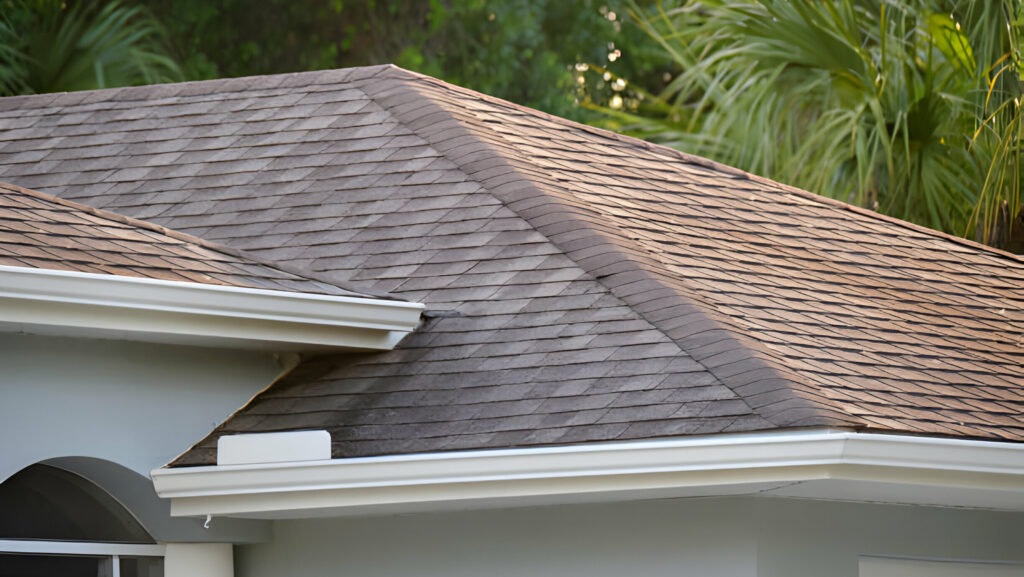
Composite shingles are made to look precisely like slate or clay tiles. They are known for their fire resistance and low maintenance.
But the real question is, what to choose? Asphalt shingles or composite shingles?
For that, we will have to make a comparison between the two. Let’s get it.
Asphalt Shingles vs Composite Shingles
While the choice really does depend on the material’s durability and lifespan, you are the one to have the final say in terms of appearance and cost.
1. Material And Durability
To talk about the material, polymer composite shingles are much more durable compared to asphalt shingles, including the various types of asphalt shingles available in the market.
They are made from a combination of wood fibers, polymers, asphalt, and recycled materials that make them comparatively more weather-resistant.
Asphalt shingles, being moisture-resistant, are durable to some extent, but in this category, composite shingles get the point.
2. Cost
The major reason why asphalt shingles are so “in” in the roofing industry, is their affordability.
This makes composite shingles thrice as expensive as asphalt shingles. It’s optimal to make your decision according to your budget.
| Material | Cost (per square foot) |
|---|---|
| Asphalt Shingles | $1.71-$3.17 |
| Composite Shingles | $7-$14 |
3. Weight
Asphalt shingles are heavier compared to synthetic shingles. I am not saying that having a lighter roofing material is extremely important, but let me tell you how it’s better.
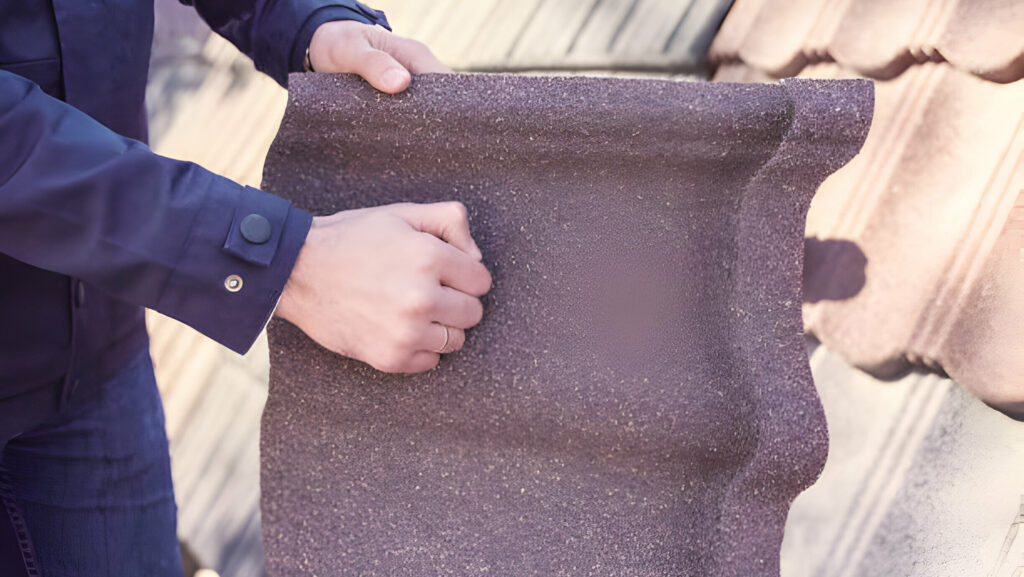
A lighter roof means reduced overall weight on your roofing structure, which is good for maintaining the structural integrity of your house.
Additionally, heavier materials are more costly to install, especially for complex roof designs, because of their higher labor-work demand and increased time scales for installation.
4. Appearance
If you are looking to achieve the timeless elegance of slate and cedar wood roofing without breaking the bank, composite shingles are the ideal choice.
Asphalt shingles, however, offer a simple and basic look. Luxury shingles in the family provide a more upscale, slate-like look to some extent but are less evident than composite shingles.
5. Maintenance
Both asphalt and synthetic shingles are low maintenance, but asphalt shingles are more expensive.
It needs to make more sense why composite shingles are not as low-maintenance as asphalt shingles, considering that they are lighter and have a longer lifespan. Let me wipe away the confusion.
Asphalt shingles are more affordable to replace and repair compared to composite shingles. Repairing composite shingles can cost three times more than repairing asphalt shingles.
But, in the long run, composite shingles are cost-effective because they last longer.
6. Lifespan
The average lifespan of asphalt shingles is from 15 to 30 years, while that of composite shingles is up to 50 years.
The materials used to make composite shingles (composition of composite shingles) make them more durable and long-lasting.
7. Ice-Dams And Algae Growth
Asphalt shingles are more susceptible to algae growth and mildew, especially in high-humidity areas, due to moisture accumulation problems. In winter, ice dams can be formed for the same reason, which might necessitate a need to change roof shingles more frequently.
Composite synthetic shingles are much more resistant to moisture, and hence, algae growth and ice dam formation are less likely to happen in them.
How To Choose Roof Shingles?
Now that you know what’s good for you and what’s not, you must also know what other things to keep in mind before deciding on shingles for your roof.
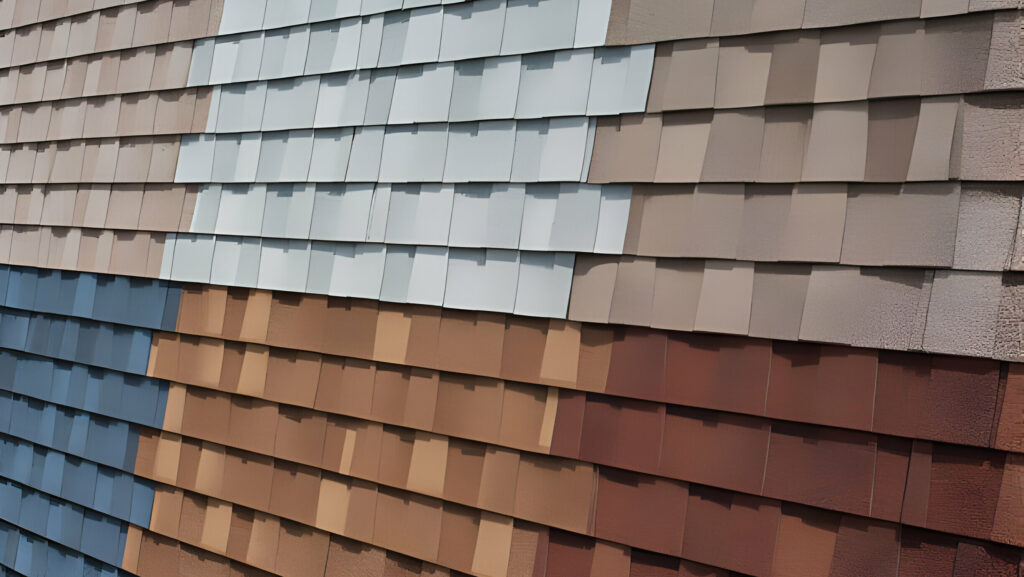
1. Material Types
You should be well aware of the characteristics of the material you are about to put on your roof because THAT is what’s going to stay with you, not the roofing contractor that offered you ten different options at once.
Take asphalt shingles, for example. With various types available, it’s essential to understand the specific benefits each offers and how they align with your needs.
In a similar vein, it is critical to balance the benefits and drawbacks of alternative options, such as wood or synthetic cedar shingles, against your preferences and budget.
2. Weather Conditions
Choosing what goes well with the local weather conditions of your locality is an essential factor to consider.
If you live in a sunny area, go for metal shingles or clay tiles due to their heat-reflecting abilities.
Similarly, in an area with high humidity, composite synthetic shingles are an ideal choice.
Slate, clay, and composite shingles are also preferred for rainy areas.
3. Roof Pitch
If your roof has a lower pitch or is flat, you don’t need to go for the traditional steep-slope roofing materials.
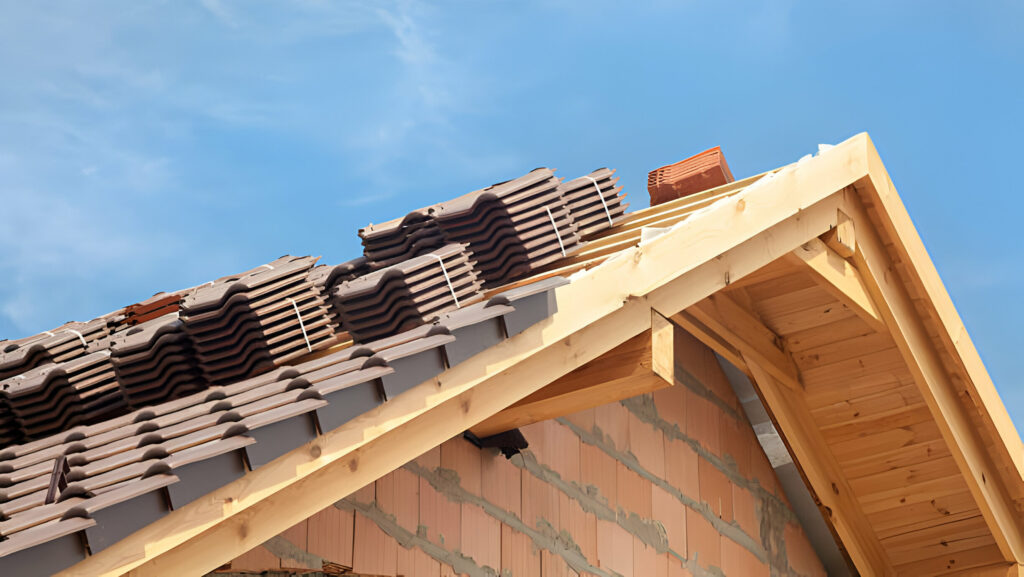
Flat roofs are less likely to shed water at the same rate as sloped roofs, and water can stand for longer. This is why roofing materials like EPDM and TPO, or rubber feet, are considered for low-sloped roofs due to their high waterproofing abilities.
4. Warranty
What if some unforeseen issues begin to appear after the installation? In that case, contacting the contractor is pointless if they have offered no warranty in the beginning.
Only choose licensed contractors that offer a brief warranty, and always go through the documentation before making your decision. This is to understand what aspects of your shingles are covered in the warranty.
By doing so, you can achieve mental peace in the long run.
5. Roof Color
This is not a very crucial thing to consider other than being merely a choice to pick your favorite color; choosing the right color does make a difference.
Darker colors tend to absorb more light energy (heat) as compared to lighter shades. So, depending on where you are residing, choose accordingly.
6. Local Building Codes
Local building codes take into account all the safety and integrity standards that must be met during your roof replacement/installation process.
Reviewing the local building codes is crucial to ensuring that the materials and shingles you choose for your project meet the safety standards that have been set.
Asphalt Shingles vs Composite Shingles FAQs
Are all shingles made of asphalt?
No, not all shingles are made of asphalt. In addition to asphalt shingles, wood shingles, composite shingles, metal shingles, etc, are also very common.
Are composite shingles the same as asphalt shingles?
Not, not in terms of anything. The composition of composite shingles does include asphalt to some extent, but they are formed of a combination of many different man-made recycled materials. Asphalt shingles are comparatively less durable and last less long.
Can You paint an asphalt roof?
Yes, you can paint your asphalt shingles roof to either update the look of your roof or use a leak-resistant paint to cover leaks temporarily.
Do asphalt shingles absorb water?
All roofing materials are designed not to absorb water, but some are more water-resistant compared to others. Asphalt shingles do not technically absorb water but offer little resistance to it, which can lead to moisture accumulation in areas with higher percentages of humidity.
Conclusion
To wrap it up, in this article, we shared the fundamental differences between composite shingles and asphalt shingles that would help you choose the right thing for yourself.
Composite shingles last longer and are much more durable and cost-effective, while asphalt shingles are deficiently maintenance-intensive, affordable, and have a variety of colors.
We wish you luck with your roofing project. Thank you for reading.

